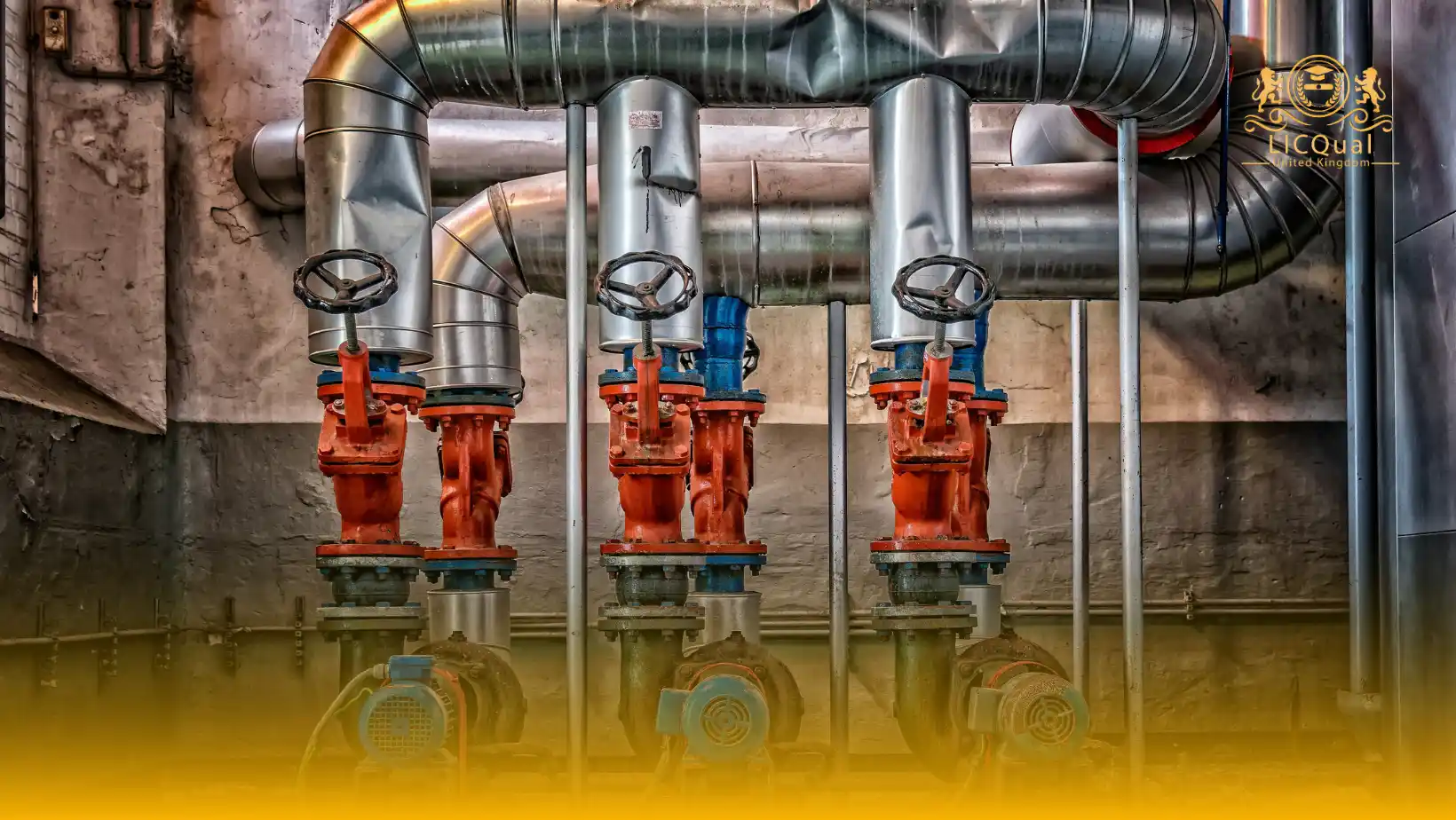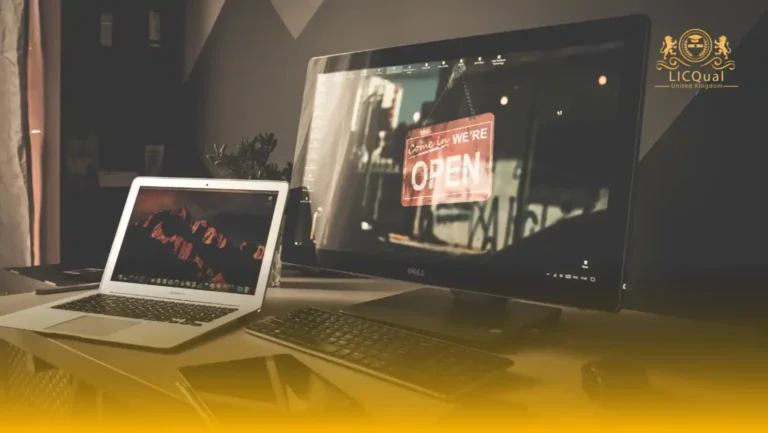Launch your career in the piping industry with the LICQual Level 3 Certificate in Piping QA/QC Engineer, a globally recognized qualification designed to equip you with the essential skills to excel as a quality assurance and quality control (QA/QC) professional. Perfect for beginners and early-career professionals, this course offers a practical, industry-focused pathway to mastering the fundamentals of piping system quality control.
Whether you’re aiming to become a QA/QC engineer, piping inspector, or technician in sectors like oil and gas, construction, or petrochemicals, this program provides the knowledge and hands-on expertise to ensure piping projects meet rigorous safety and performance standards. Start your journey today and build a rewarding career with a certification that opens doors to global opportunities.
This engaging course combines clear, accessible modules with real-world applications, guided by experienced industry experts. You’ll learn critical skills, from interpreting piping designs to conducting inspections and ensuring compliance with international standards. With flexible learning options—online, in-person, or blended—the LICQual Level 3 Certificate fits seamlessly into your schedule, making it ideal for working professionals and newcomers alike.
The LICQual Level 3 Certificate in Piping QA/QC Engineer offers a comprehensive introduction to quality assurance and quality control in piping systems, preparing you to deliver safe, efficient, and compliant projects. This course covers key topics such as piping system components, material selection, visual inspection techniques, basic non-destructive testing (NDT), and health, safety, and environmental practices.
You’ll also explore slinging and lifting operations, risk assessment, and compliance with standards like ASME, API, and ISO. Through practical exercises, case studies, and hands-on simulations, you’ll develop the skills to identify defects, ensure quality fabrication, and maintain project integrity in industries like energy and infrastructure.
Tailored for flexibility, this program accommodates learners at all levels, with online and blended learning options to suit busy schedules. Whether you’re entering the piping industry or seeking to enhance your skills as a QA/QC professional, this course provides a solid foundation for career growth. Upon completion, you’ll earn a prestigious LICQual Level 3 Certificate, recognized worldwide, that validates your expertise in piping quality control. Take the first step toward becoming a skilled QA/QC engineer and unlock exciting career prospects in the dynamic piping sector.
Course Overview
Qualification Title
LICQual Level 3 Certificate in Piping QA/QC Engineer
Total Units
6
Total Credits
24
GLH
120
Qualification #
LICQ2200540
Qualification Specification
To enroll in the LICQual Level 3 Certificate in Piping QA/QC Engineer applicants must meet the following criteria:
|
Qualification# |
Unit Title |
Credits |
GLH |
|---|---|---|---|
|
LICQ2200540-1 |
Introduction to Piping Engineering and QA/QC Principles |
4 |
20 |
|
LICQ2200540-2 |
Basics of Piping Materials, Codes, and Standards |
4 |
20 |
|
LICQ2200540-3 |
Welding Technology and Procedures in Piping Systems |
4 |
20 |
|
LICQ2200540-4 |
Piping Inspection Techniques and Tools |
4 |
20 |
|
LICQ2200540-5 |
Quality Assurance Documentation and Reporting |
4 |
20 |
|
LICQ2200540-6 |
Health, Safety, and Environmental Practices in Piping Projects |
4 |
20 |
By the end of this course, applicants will be able to:
1. Introduction to Piping Engineering and QA/QC Principles
- Explain the core concepts of piping engineering, including system design, components, and their applications in industrial settings.
- Describe the principles of quality assurance (QA) and quality control (QC) specific to piping projects and their role in ensuring project success.
- Identify the responsibilities of a QA/QC engineer in maintaining safety, reliability, and compliance in piping systems.
- Apply fundamental QA/QC methodologies to monitor and improve the quality of piping installations.
2. Basics of Piping Materials, Codes, and Standards
- Identify the properties and applications of common piping materials, such as steel, alloys, and non-metallic materials, in various industries.
- Interpret key international codes and standards (e.g., ASME B31.3, API, ISO) to ensure compliance in piping design and fabrication.
- Select appropriate materials based on project requirements, considering factors like pressure, temperature, and environmental conditions.
- Evaluate material specifications to ensure they meet quality and regulatory standards for piping systems.
3. Welding Technology and Procedures in Piping Systems
- Explain the principles of welding technologies used in piping systems, including common methods like TIG, MIG, and arc welding.
- Apply proper welding procedures to ensure the integrity and quality of welds in piping fabrication and installation.
- Identify weld imperfections and defects, such as porosity or cracks, and propose corrective actions to meet quality standards.
- Demonstrate knowledge of welding procedure specifications (WPS) and procedure qualification records (PQR) in QA/QC processes.
4. Piping Inspection Techniques and Tools
- Conduct visual and dimensional inspections of piping systems using appropriate tools to identify defects and ensure compliance.
- Utilize inspection tools, such as calipers, gauges, and borescopes, to assess the quality of piping components and welds.
- Apply inspection techniques to verify alignment, fit-up, and surface conditions of piping systems according to project specifications.
- Document inspection findings accurately to support quality control processes and compliance audits.
5. Quality Assurance Documentation and Reporting
- Develop and maintain accurate QA/QC documentation, including inspection reports, material certifications, and test records for piping projects.
- Ensure traceability of materials and components through proper documentation to meet regulatory and client requirements.
- Prepare clear and concise quality reports to communicate findings, non-conformities, and corrective actions to project stakeholders.
- Utilize digital tools and systems to streamline documentation and reporting processes for efficient project management.
6. Health, Safety, and Environmental Practices in Piping Projects
- Identify health, safety, and environmental (HSE) risks associated with piping projects and implement mitigation strategies.
- Apply safe work practices during piping fabrication, inspection, and installation to ensure a secure working environment.
- Explain the environmental impact of piping operations and adopt sustainable practices to minimize waste and emissions.
- Ensure compliance with HSE regulations and industry standards to maintain a safe and environmentally responsible workplace.
This course is designed for:
- Aspiring QA/QC Engineers:
Those looking to begin a professional career in piping quality assurance and quality control within industrial projects. - Mechanical and Piping Technicians:
Technicians seeking formal qualifications to validate and improve their practical skills and industry knowledge. - Welders and Fabricators:
Skilled workers aiming to move from execution roles to inspection and supervisory positions. - Engineering Graduates or Diploma Holders:
Fresh graduates in mechanical, petroleum, or industrial engineering seeking specialized certification for the QA/QC domain. - Site Inspectors and Supervisors:
Individuals already working in piping installation or site inspection who want to upgrade their competencies in quality control. - Project Engineers and Coordinators:
Professionals involved in managing piping projects who need to understand quality systems, documentation, and compliance. - Quality Control Professionals:
Existing QA/QC personnel who wish to strengthen their expertise or expand their qualifications to meet international job standards. - HSE Officers and Auditors:
Safety professionals looking to understand piping systems and integrate quality checks into safety planning. - Contractors and Subcontractors:
Those responsible for delivering piping services under client QA/QC specifications and need structured knowledge for compliance. - Professionals Seeking Global Opportunities:
Individuals targeting employment in international projects where QA/QC certification is often a mandatory or preferred requirement.
Assessment and Verification
All units within this qualification are subject to internal assessment by the approved centre and external verification by LICQual. The qualification follows a criterion-referenced assessment approach, ensuring that learners meet all specified learning outcomes.
To achieve a ‘Pass’ in any unit, learners must provide valid, sufficient, and authentic evidence demonstrating their attainment of all learning outcomes and compliance with the prescribed assessment criteria. The Assessor is responsible for evaluating the evidence and determining whether the learner has successfully met the required standards.
Assessors must maintain a clear and comprehensive audit trail, documenting the basis for their assessment decisions to ensure transparency, consistency, and compliance with quality assurance requirements.







